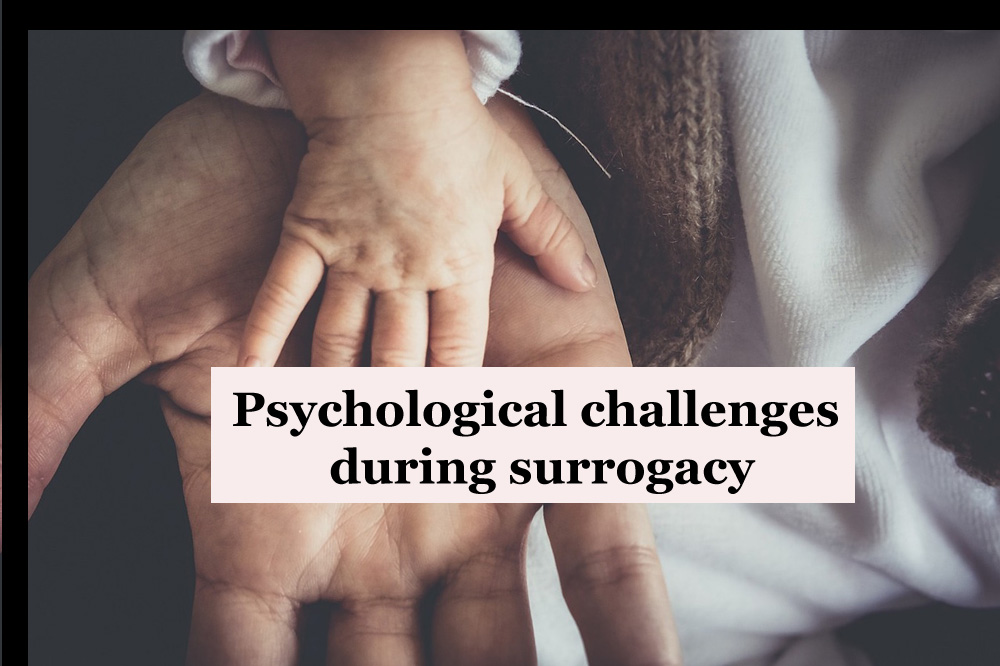Surrogacy in 2025: Latest Trends, Technologies, and Ethical Shifts
Surrogacy is no longer just a fertility option—it’s a rapidly evolving field influenced by biotechnology, shifting social values, and global legal reforms. As we navigate 2025, intended parents, surrogates, and agencies are seeing significant changes in how surrogacy is practised, perceived, and regulated.
In this post, we dive into the top surrogacy trends for 2025, including innovations in IVF, the rise of ethical surrogacy models, legal changes, and growing inclusivity. We’ll also explain how Become Parents stays ahead of these trends to provide safe, transparent, and personalised journeys for our clients.
1. Tech-Driven IVF and Embryology Advancements
The foundation of any surrogacy process is IVF, and in 2025, it has reached new levels of precision and success:
- AI in Embryo Selection: Artificial intelligence is now widely used to analyse embryos for genetic health and implantation potential, improving success rates while reducing failed cycles.
- Non-Invasive Genetic Testing (niPGT): This newer method allows screening embryos without harming them, making the process safer and more accessible.
- Cryopreservation Innovation: Frozen embryo transfers are now more successful than ever due to cutting-edge cryopreservation protocols.
At Become Parents, we work only with fertility clinics that use the latest IVF innovations, ensuring the best outcomes with minimal risk.
2. Ethical Surrogacy is Becoming the Global Standard
The surrogacy industry is moving away from transactional models toward more compassionate, equitable frameworks. In 2025, “ethical surrogacy” is more than a buzzword—it’s a global standard.
Key features of ethical surrogacy:
- Surrogates are fully informed, emotionally supported, and fairly compensated.
- No coercion—surrogates freely volunteer.
- Transparency in all contracts and compensation.
- Post-birth care and emotional support for surrogates.
Become Parents has championed ethical surrogacy since our inception. We provide:
- Mental health support for surrogates.
- Financial clarity and legal protections.
- Culturally respectful, non-exploitative programs across every destination.
3. Growing Global Inclusivity for LGBTQ+ and Single Parents
2025 marks a turning point in global surrogacy inclusivity:
- More countries—including Colombia, Mexico, and parts of Europe—now legally support LGBTQ+ and single-parent surrogacy.
- Intended parents no longer need to be married heterosexual couples.
- Agencies and clinics are revising outdated policies to accommodate diverse family structures.
Become Parents proudly supports all family types. Our legal advisors ensure intended parents are protected, regardless of gender identity or marital status.
4. Legal Frameworks are Expanding and Evolving
As demand grows, governments are refining surrogacy laws to:
- Prevent exploitation of surrogates.
- Clarify parentage rights.
- Streamline cross-border legal processes.
Emerging legal trends in 2025 include:
- Digital birth registrations and pre-birth parentage orders.
- Multinational cooperation for passport issuance.
- Visa fast-tracking for intended parents.
With a global legal network, Become Parents ensures clients always understand and comply with evolving laws.
5. Rise of Hybrid Surrogacy Models
In 2025, many intended parents are opting for hybrid or cross-border surrogacy:
- IVF may be performed in a high-tech country (e.g., U.S. or India), while surrogacy occurs where laws are favorable (e.g., Mexico or Georgia).
- This lowers costs while maintaining high medical standards.
Become Parents facilitates seamless coordination between fertility centers, surrogate homes, and legal teams—ensuring smooth experiences across borders.
6. More Focus on Psychological Well-being for All Parties
Emotional and psychological health is now a central component of surrogacy planning:
- Surrogates receive counseling pre-, during, and post-pregnancy.
- Intended parents get mental health guidance for stress, anxiety, and emotional transitions.
Our in-house wellness counselors at Become Parents ensure emotional balance and positive bonding before and after the birth.
7. Transparent Cost Planning and Financial Literacy
As costs fluctuate across countries and programs, intended parents are demanding:
- Upfront cost estimates
- No hidden fees
- Financial coaching and payment flexibility
Become Parents provides customised cost plans and clear contracts. We also offer instalment payment options and refund-based programs in select countries.
8. Sustainability in Surrogacy
Eco-conscious parents in 2025 are asking:
- How can IVF clinics reduce medical waste?
- Are medications and hormones ethically sourced?
- What carbon footprint does international surrogacy leave?
Sustainability is becoming a consideration, and Become Parents partners with clinics adopting greener lab practices and digital paperwork to reduce environmental impact.
Looking Ahead: What Does the Future Hold?
By 2030, experts expect:
- More AI involvement in fertility planning
- Universal surrogacy registries for legal transparency
- Expansion of international surrogacy treaties
Become Parents is preparing for this future by investing in research, technology adoption, and ethical reforms.
Are you ready to begin your surrogacy journey with confidence, clarity, and compassion? At Become Parents, we stay ahead of every trend to make your dream of parenthood a reality.
👉 Book a Free Consultation Today
Let us help you build your family—with love, technology, and ethical care.
FAQs: Surrogacy in 2025
Q: Is AI embryo selection reliable?
A: Yes. In 2025, AI-assisted embryo grading shows higher success rates than manual methods in most fertility centers.
Q: What makes a surrogacy program “ethical”?
A: Transparency, consent, fair compensation, and post-birth care for surrogates.
Q: Can I pursue surrogacy if I’m single or in a same-sex relationship?
A: Absolutely. Many countries now support diverse family types—and Become Parents has tailored programs for all.
Q: Is cross-border surrogacy complicated?
A: It can be—but not when you have an experienced agency like Become Parents managing logistics, legalities, and clinic coordination.
Stay informed. Stay empowered. And let us walk this journey with you.











 For instance, a frequent IVF process nowadays is pre-implantation genetic testing (PGT). Before they are placed into the surrogate’s uterus, this testing lets doctors search embryos for genetic defects. The probability of a successful pregnancy and a healthy kid is much raised by choosing the best embryos. It additionally lessens the possibility of multiple births, which could be harmful to the surrogate and the unborn children.
For instance, a frequent IVF process nowadays is pre-implantation genetic testing (PGT). Before they are placed into the surrogate’s uterus, this testing lets doctors search embryos for genetic defects. The probability of a successful pregnancy and a healthy kid is much raised by choosing the best embryos. It additionally lessens the possibility of multiple births, which could be harmful to the surrogate and the unborn children.
 Though still in its early years, developments in genetic engineering might greatly affect surrogacy going forward. Before they are placed in the surrogate, technologies such as CRISpen—which lets researchers alter genes—could be used to stop genetic problems in embryos. Although the moral consequences of genetic engineering are still under discussion, the possibility to enhance the health results of children produced via surrogacy excites.
Though still in its early years, developments in genetic engineering might greatly affect surrogacy going forward. Before they are placed in the surrogate, technologies such as CRISpen—which lets researchers alter genes—could be used to stop genetic problems in embryos. Although the moral consequences of genetic engineering are still under discussion, the possibility to enhance the health results of children produced via surrogacy excites.

 One of society’s most significant roles in surrogacy is to dispel the preconceptions and misunderstandings about the practice. False knowledge about surrogacy might result in negative opinions and stigma. For instance, there is a widespread belief that planned parents are “buying” a baby or that surrogate mothers are driven just by financial gain. These preconceptions might dehumanize the surrogacy participants and simplify the process to a mere transaction.
One of society’s most significant roles in surrogacy is to dispel the preconceptions and misunderstandings about the practice. False knowledge about surrogacy might result in negative opinions and stigma. For instance, there is a widespread belief that planned parents are “buying” a baby or that surrogate mothers are driven just by financial gain. These preconceptions might dehumanize the surrogacy participants and simplify the process to a mere transaction.



 Need for Control: One of the biggest noteworthy psychological challenges during surrogacy is the feeling of need for control. Intended parents mostly aren’t aware of the minutes of the surrogacy procedure.
Need for Control: One of the biggest noteworthy psychological challenges during surrogacy is the feeling of need for control. Intended parents mostly aren’t aware of the minutes of the surrogacy procedure. Counselling: Looking for support from experts specializing in fertility and surrogacy can give intended guardians adapting techniques to oversee their stress and uneasiness. Moreover, it can help them deal with all such stressful moments and phases in their surrogacy journey.
Counselling: Looking for support from experts specializing in fertility and surrogacy can give intended guardians adapting techniques to oversee their stress and uneasiness. Moreover, it can help them deal with all such stressful moments and phases in their surrogacy journey.

 Keeping up a balance between a surrogate’s medical independence and satisfying the legally binding commitments of a surrogacy agreement is crucial. This may be accomplished through comprehensive legal contracts that unequivocally state the rights and duties of both parties. Moreover, this would include clauses that protect the surrogate’s right to form autonomous medical choices.
Keeping up a balance between a surrogate’s medical independence and satisfying the legally binding commitments of a surrogacy agreement is crucial. This may be accomplished through comprehensive legal contracts that unequivocally state the rights and duties of both parties. Moreover, this would include clauses that protect the surrogate’s right to form autonomous medical choices.
